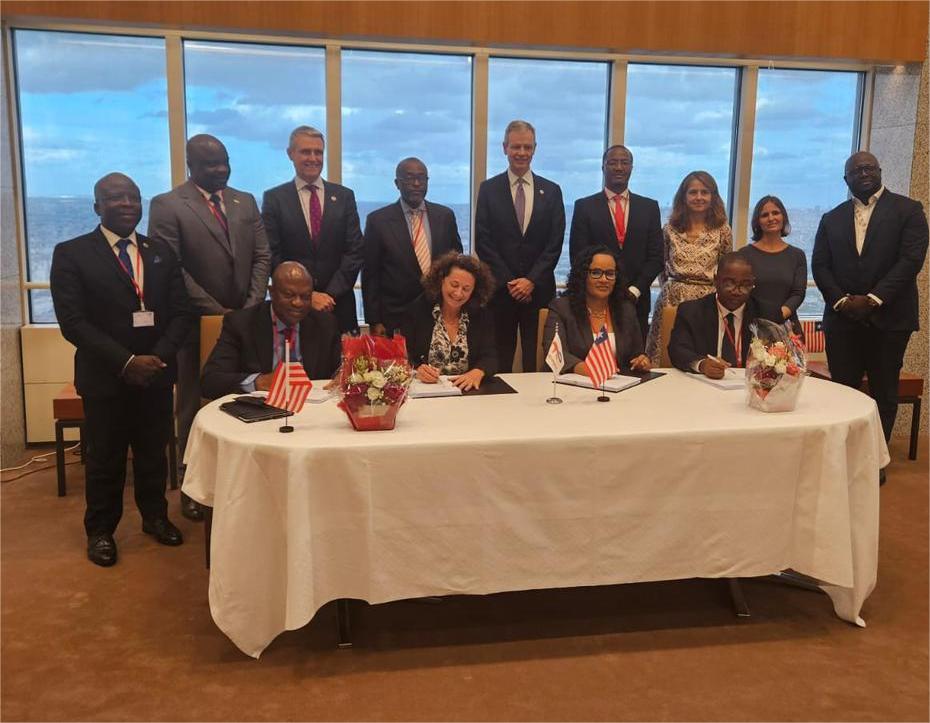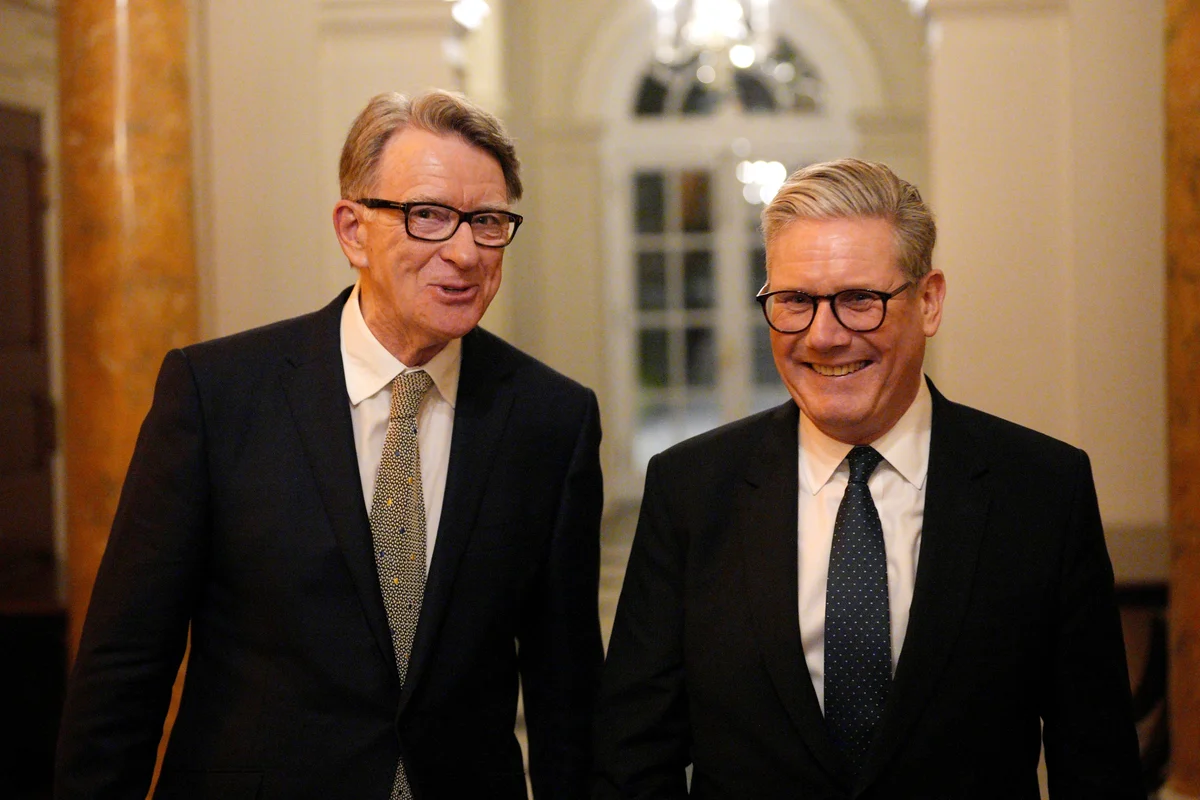By New Dawn
Copyright thenewdawnliberia

By Seltue Karweaye Sr.
TotalEnergies, formerly known as Total, is a major player in the global oil and gas industry, recognized as the fourth-largest publicly traded oil and gas company worldwide. With operations spanning over 130 countries, TotalEnergies engages in various sectors of the petroleum industry, including exploration, production, refining, and marketing. TotalEnergies was originally established as Compagnie Française des Pétroles (French Petroleum Company) under the direction of the French government. In 1992, the French government decided to substantially reduce its ownership stake in Total. Despite this change, Total remains one of the largest fossil fuel companies in the world.
TotalEnergies in Liberia
The company made its entry into the Liberian market in 2005, following the election of Ellen Johnson-Sirleaf, the country’s first female president, who emphasized national reconstruction and economic development. At that time, TotalEnergies established a substantial presence in Liberia, launching over 60 filling stations and contributing to the country’s growth in the energy sector.
However, the onset of the Covid-19 pandemic prompted significant operational challenges for many businesses across the globe, including those in the oil and gas sector. In response to these challenges, TotalEnergies made the strategic decision to divest its interests in Liberia. In 2020, the company sold its marketing and service assets in the country, which included a network of 63 service stations, to Conex Oil & Gas Holdings.
On September 16, 2025, the President of Liberia made a significant announcement regarding the signing of Production Sharing Contracts (PSCs) facilitated by the Liberia Petroleum Regulatory Authority (LPRA) in partnership with TotalEnergies. This agreement encompasses four strategically significant offshore blocks located within the expansive Liberian Basin.
In his pronouncement, the President highlighted the steps taken to revitalize the country’s energy sector, stating, “In 2024, I extended invitations to world-class energy companies to invest in Liberia. I firmly pledged that, under my leadership, we would cultivate a business environment conducive to thriving investments—underpinned by ethical standards, adherence to the rule of law, international best practices, and rigorous enforcement of contracts to safeguard the interests of all stakeholders involved.”
He further clarified that the PSCs are currently awaiting ratification by the National Legislature and the necessary signature from the President. President Boakai voiced optimism that these agreements signal the closure of a decade-long hiatus in Liberia’s offshore oil and gas sector and mark the country’s re-entry into the competitive global petroleum market.
While we commend the President and his administration for their proactive approach to attract foreign investment and stimulate economic growth, it is crucial to exercise diligence in reviewing the agreements to ensure they are truly advantageous for the citizens of Liberia. Financial transparency and community benefits should be a priority to ensure that this revival of the oil and gas sector brings sustainable development and prosperity to the entire nation.
TotalEnergies, and Corruption
TotalEnergies has been embroiled in serious accusations of corruption, with allegations suggesting that the company has engaged in bribery to obtain concessions throughout Africa and beyond. Studies indicate that pervasive corruption on the continent has detrimental effects on the growth of renewable energy consumption, significantly impeding the transition to sustainable energy solutions.
A comprehensive study conducted by Global Witness highlighted that between April 2022 and the third quarter of 2023, TotalEnergies distributed €13 billion in ordinary and special dividends and repurchased €12 billion in shares. This financial maneuvering followed the Russian invasion of Ukraine, leading to a staggering €25 billion ($26.4 billion) windfall for the company’s shareholders. Global Witness remarked, “Instead of using that wartime windfall to accelerate the energy transition, it has chosen to prioritize profit over people, enriching its shareholders yet again. While Total’s shareholders celebrate their gains, the broader community and the environment pay the price.”
TotalEnergies in Uganda
In Uganda, TotalEnergies is significantly involved in the controversial East African Crude Oil Pipeline (EACOP) project, which stretches across Uganda and Tanzania. Through its subsidiaries, TotalEnergies EP Uganda and TotalEnergies East Africa Midstream, the company oversees both the EACOP and the Tilenga oilfields. Reports from local community members indicate that they have felt forced to accept settlement packages for their land, which have frequently been inadequately compensated. An investigative report by the Federation of Friends of the Earth France (Les Amis de la Terre) uncovered troubling practices, suggesting that communities were coerced into accepting compensation offers that grossly undervalued their land’s true worth. Disturbingly, several individuals reported being pressured to sign contracts immediately, leaving them with little to no opportunity for reflection or negotiation. In response to these allegations, TotalEnergies has categorically denied any claims that its subsidiaries have exerted undue pressure on community members to sign compensation agreements, maintaining that all settlements were carried out in good faith.
TotalEnergies in Mozambique
TotalEnergies has been a key player in Mozambique since 1991, but it dramatically escalated its presence in 2019 with the launch of the Mozambique LNG (Liquefied Natural Gas) project, securing vital drilling rights in the process. This ambitious initiative aims to develop the Golfinho and Atum natural gas fields in Offshore Area 1 of the Rovuma Basin.
As part of this project, TotalEnergies has constructed two state-of-the-art liquefaction units designed to convert natural gas into LNG, with an impressive total capacity of 13.1 million tonnes per annum. However, alarmingly, estimates suggest that the company’s operations could lead to a staggering 14% increase in Mozambique’s greenhouse gas emissions, primarily driven by methane emissions from the LNG train.
In addition to these developments, TotalEnergies was in the process of building the onshore Afungi LNG Park, which encompasses gas production facilities, treatment plants, ports, offices, and various contractor facilities. Unfortunately, in 2021, a relentless insurgent attack by Islamist forces struck Palma, compelling TotalEnergies to halt operations in the region. During this chaos, it became evident that the Mozambican army’s focus was disproportionately on safeguarding TotalEnergies’ assets, deploying 800 soldiers to defend the Afungi Park while leaving civilians vulnerable. Independent reports indicate a devastating death toll of approximately 1,190 individuals, including innocent children.
In light of these tragic events, survivors and families of the victims—which include British and South African subcontractors—have mounted a serious legal challenge against TotalEnergies. They allege negligence and indirect manslaughter, asserting that the company failed to take necessary precautions to ensure the safety of its subcontractors, despite being well aware of the escalating risks. This raises critical questions about corporate responsibility in high-stakes environments and the ethical implications of prioritizing profits over human safety.
TotalEnergies in France
TotalEnergies has operated with striking impunity, leading to a wave of lawsuits in its home country of France that seek to hold the company accountable for its actions. In September 2022, serious criminal charges were lodged against the French oil giant in the Nanterre Judicial Court. This landmark lawsuit demands that Total be held responsible for its significant role in exacerbating climate change, alleging that its failures to prevent disasters have resulted in manslaughter, unintentional harm to individuals, and damage to property—placing countless lives at risk.
In 2024, another critical case was initiated by a coalition of eight individuals and three NGOs, which directly targeted Total’s CEO and other senior executives. They contend that the company’s relentless fossil fuel exploitation has “contributed to the deaths of victims of climate-fueled extreme weather disasters,” highlighting the urgent need for accountability at the highest levels of leadership.
Additionally, in 2023, investigative journalist Quentin Miller, writing for Greenpeace, uncovered troubling revelations about TotalEnergies’ involvement in Yemen, a nation beset by a devastating civil war and numerous human rights violations since 2014. Miller’s report accuses TotalEnergies of being complicit in the reckless disposal of millions of liters of toxic water, oil spills, the use of unconventional operational practices, and the pollution of Yemen’s primary groundwater source. Such actions, which blatantly disregard recognized international standards, must not go unchecked.
Furthermore, a separate lawsuit filed in Paris accuses Total of egregious human rights violations in Yemen. In this case, attorneys representing two individuals have launched legal action against the company, asserting that their clients were held and tortured by Emirati military personnel at a Total gas facility, which was usurped and used as a detention center.
TotalEnergies heavily promotes its commitment to renewable energy, yet it continues to escalate its oil and gas exploration activities across the globe. This aggressive expansion often exacerbates regional conflicts and leads to severe environmental degradation, imposing a heavy toll on vulnerable communities and fragile ecosystems. The company’s operations illustrate a disturbing trend of prioritizing financial gain over social responsibility, resulting in widespread displacement, violence, and significant ecological harm. For years, Total has profited immensely from these exploitative practices without facing meaningful consequences. However, the tide is turning as it currently confronts a series of lawsuits in France that challenge the legitimacy of its actions and demand accountability.
In this context, it is particularly alarming that TotalEnergies has established ongoing interests in multiple offshore blocks in Liberia. This company’s actions starkly resemble the imperial and colonial tactics of its home country (France), where profit is prioritized over the welfare of marginalized nations, often resulting in severe environmental and social repercussions.
The Boakai administration must adopt a bold and assertive stance with TotalEnergies, emphasizing that the Liberian people have successfully thrived without oil drilling since gaining independence in 1847. They can definitely continue to do so for an extended period if it means safeguarding their legitimate rights and entitlements. Liberia is currently at the threshold of a remarkable opportunity—if managed astutely, the country could harness its oil resources to become one of the select few African nations to secure a substantial share of the revenues generated from oil discoveries.
The potential financial windfall from oil exploration could revolutionize Liberia’s economy, providing much-needed funding for infrastructure development, education, and healthcare. Hence, it is essential for the current administration to negotiate from a position of strength and ensure that any agreements made are equitable and beneficial for all Liberians, paving the way for a prosperous and sustainable future.
In conclusion, this article aims to highlight the significant implications of TotalEnergies entering into Production Sharing Contracts for four offshore blocks located in the rich and promising Liberian Basin. The author meticulously examines TotalEnergies’ controversial operations worldwide, which have garnered substantial criticism for their disregard for local communities and ecosystems. The Liberian government must approach this deal with heightened vigilance and strategic foresight, ensuring that the nation and its citizens derive maximum benefits from these contracts. I rest my pen.



